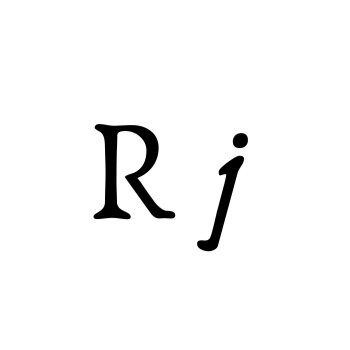Divine Madness
I had my madness, and it was divine.
I was like Abraham leading his lamb;
and I was also the sacrificial ram.
I was Dionysos, the sacrificed child;
pure wine of a God that is neither
child nor man but all too much of
both. It was my twenty-fourth year,
and however ineffable, there were
plenty points of raison d’etat but this
is neither the time nor place for their
explications; suffice to say that my
time had come to throw off the mad
caper, and cape as one profoundly mad;
to throw away the zeal of innocence,
and try, but fail, to hold onto something
stronger, more massive than mass or
anything the hands alone can grasp;
but it all spun from out my buttery,
canola oiled, palmed hands of youth
where tobacco stains built up with
the dirt and street cement I slept on
in my flight to discover another glen of stars
just over the hill—just over that one,
and that one, and so on; until I was
here, stuck in my madness, stuck
forever after grappling with what
I could not grasp in my hour of divinity;
in my hour of shining just beyond the
hill of men. And because the bridge
I relied on did not take me vertically
to its zenith but horizontally where I
already stood; as if I were fated to be
moved by certain rhythms within the
grid (however much I try to escape
its clutches) and that I were set by design
to feed the flux of despair, of prison;
of death as it comes to the mortal
and immortal all alike—as it nails
both God and man, natural and mystic—
the virtuous and the indifferent.
And though I knew that only the tree,
the sacrifice; an Odin-like solemnity
of self-effacement for self-upliftment
(a self-fulfilling sacrifice to the self)
was what could save me from myself,
I still, in my stubborn youth in chains
of madness—unable to see the warning
signs, always mistaking the glimmer
of any jewel as destiny’s wink,
never realizing the Luciferian deceit
behind it all—: in my flat-out stupidity
and arrogance, believed my spirit and
its divinity would last through eternity
as it spiraled in and out of my frame;
that all my soul, all my loved one’s,
would be saved from the rapture;
from the burning of the heavy earth;
from the flooding of the plains as I took
them atop my body, through my heart;
as a consciousness where madness,
divinity, and reality come together and apart;
where they puddle, then porously regather
into clouds that rain down into dreams
whose fulcrum is my joy and torture;
whose torrent I know as the thoughts,
the feelings, the inebriation that I hailed,
thundered, down the hills, through pouring
streets, up the empty canyon with my feet—
and through the wings of my imagination;
my torn, fettered, musically mad singing
fantasy of mind—and down into the ruts,
the grazing places of the masses, the herds;
in the valley of not lilies or roses
but pure thorns that are bred by people
and their thorny children; yes, I grew mad
at their stare, as they grew mad at mine;
and I sighed and bawled like a child delivered
of its throne; renewed, exonerated by
the sunset fading like the reverse shadow
of a rose returning to the summer where
I lost it all with a ball of frayed thread.
And because I did not, could not, love
the princess, I was doomed to madness;
and the kingdom I came close to winning
fell into the hands of demolition; and decay,
once wiped out with every handicap—
every inebriation our Gods suffer us
to be drunk by—threw me into shackles
I knew to be the only reasonable conclusion.
But the minotaur, worst of all, died from
stomach cancer; not from my hands.
For I am a former ghost of myself and not
yet the ghost I will be. My madness made
and crushed me; my spirit, my imagination,
continue their craving of stars just over
the hill; of falling, striking through their
own meteoric heart. My maelstrom, in
truth, is without end; is without firm
beginning: is like Jesus’s weaving through
Jews, then Gentiles; searching for solid
soil; or like Abraham, whose faith is
wild like the land—unbelievable,
primordial, mammoth, and oh so
real to him—too real as to be of any
security to anyone else; too archaic
to be of benefit these days; and yet,
unceasing, unwavering it goes
from golden Egypt to arid desserts;
in epic richness and fluent despair,
or like a giant centipede that erupts
from behind the head of the sphinx;
like a monster drinking too long from
its own scorpion tail, but somehow
gaining nourishment thereby;
like a vicious snake eating wormholes
through patient space-time, a Magellan
of cosmic idleness; such madness
as even the Gods, however ambivalently
they express it, are inspired by.
Galen Cunningham
Galen Cunningham is a neurodivergent poet and fiction writer from the foothills of Colorado. His poetry has been published or is forthcoming in Literary Yard, The Creativity Webzine, Blue Unicorn, Ink In Thirds, Sparks of Calliope, Apocalypse Confidential, Fresh Words Magazine and IHRAF.
